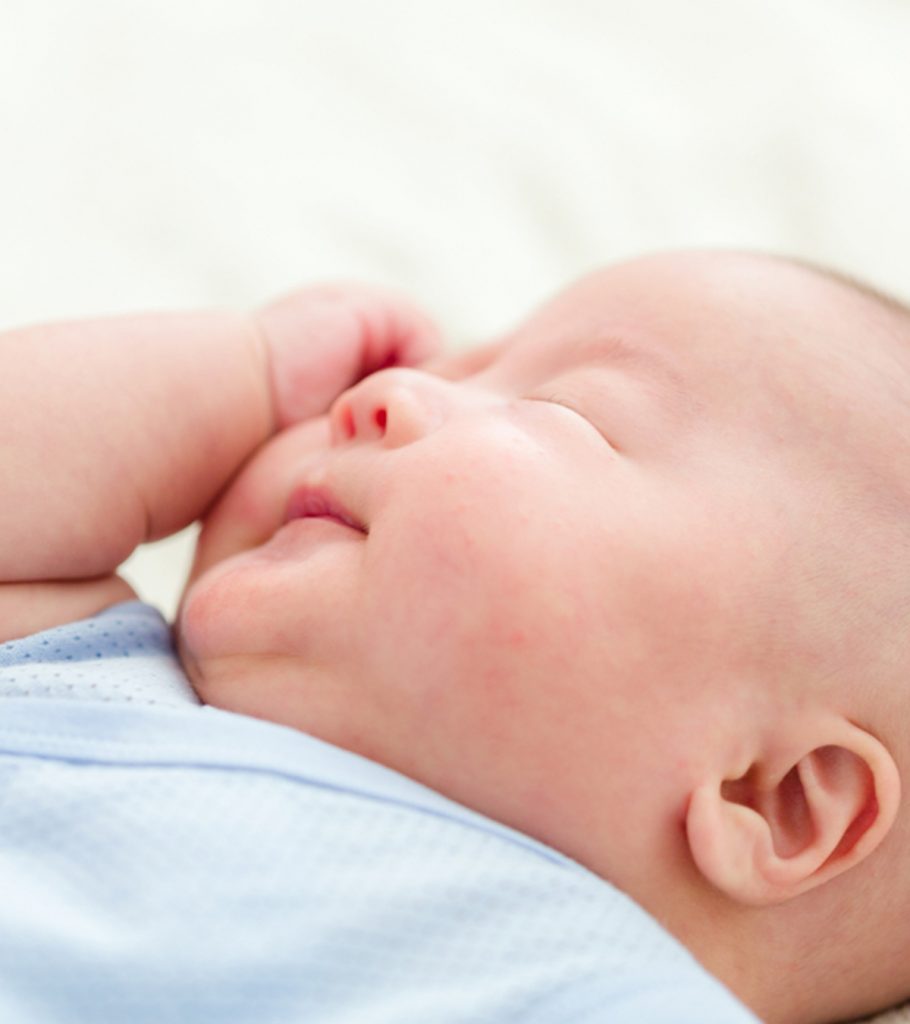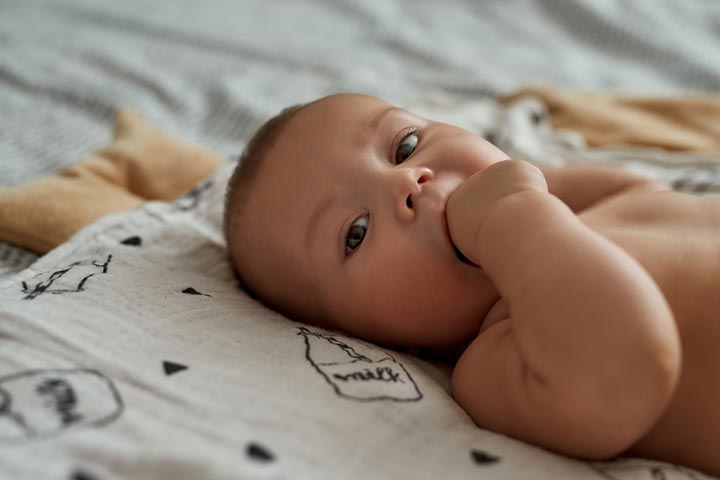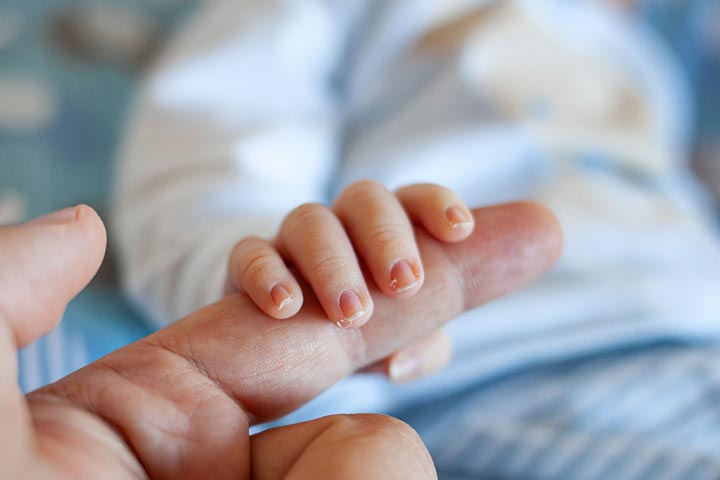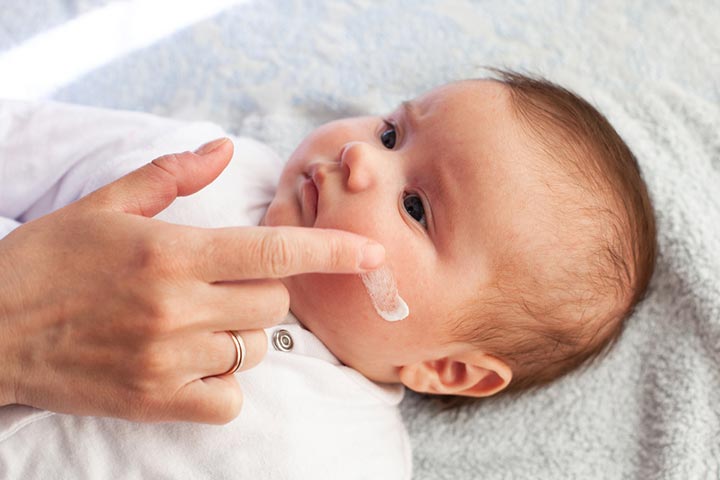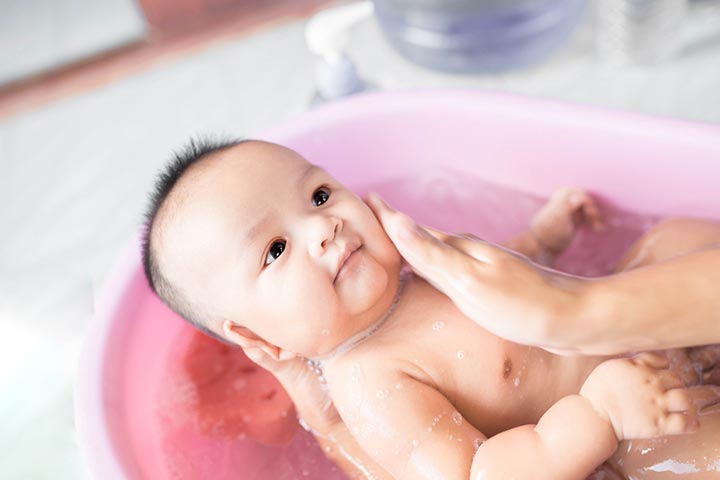If you have noticed scratch marks on your baby’s face, it is quite understandable to feel upset or anxious. However, these marks have likely been caused by your baby scratching their own face. Nevertheless, parents should be wary about babies scratching themselves.
Scratch marks on babies’ faces are common due to their sensitive skin. Even activities such as bathing and massaging may cause you to accidentally scratch their delicate skin.
This post discusses the various reasons babies scratch their faces and ways to prevent scratch marks and skin infections caused by scratching.
Why Do Babies Scratch Their Face?
There are several reasons why a baby scratches their face. Some of the common ones include.
- Exploring face:
According to research, touching one’s face is an instinct that babies develop in utero. It is considered a sign of healthy fetal development, and the habit continues after birth. Exploring one’s body and the desire to sense new sensations could make a baby touch their face and scratch it accidentally. It could be the reason for scratch marks on the baby’s face when no other apparent reasons are present (1).
- Moro reflex: Newborns do not have adequate control of most body movements until they are a few weeks old (2). It is when reflexes come into use. Moro reflex, also known as the startle reflex, is an involuntary response wherein a baby arches their back and throws their arms, legs, and neck in response to a sudden movement or loud noise. It is during this involuntary reflex that a baby may touch their face and scratch it accidentally.
- Sharp nails:
Although babies have thin nails, they grow pretty fast. Sometimes, you may need to trim them twice a week (3). If you forget to upkeep, a baby may accidentally scratch themselves at any time.
- Dry skin: Babies have thin and permeable skin susceptible to moisture loss. Bathing the baby too often, using harsh soap, applying baby talcs and prolonged exposure to hot or cold weather conditions with low humidity can degrade their skin barrier, causing moisture loss (4). Moisture loss can make ababy’s skin dry and flaky, triggering itchiness and irritation.
- Skin conditions: Atopic dermatitis, eczema, scabies, and miliaria (prickly heat or baby heat rash) are some skin conditions that cause itchy skin rashes (5). These rashes may irritate the baby and cause them to scratch their skin often. The itchiness due to these skin conditions resolves or alleviates once the treatment begins.
- Upset baby:
Sometimes, when a baby is upset, they may accidentally scratch their nose, forehead, or scalp, as they cannot express themselves conventionally.
When Do Babies Stop Scratching Their Face?
Dr. Sonia Cajigal, a board-certified allergist and immunologist from Greater St. Louis, says, “Babies generally stop scratching their face after they are six months old and have better motor control. If they’re scratching due to eczema or itchy skin (eczema affects the cheeks in infancy), it tends to diminish after two.”
Based on the cause, a baby may cease scratching their face within a few weeks after birth or take a little longer. For instance, scratching the face due to uncontrolled movements may end once the baby has better control of their muscles and body movements. Treating skin conditions can stop scratching or may alleviate it to a significant extent.
In most cases, a baby scratching their face is a temporary issue and seldom causes scarring. However, if the scratching persists or worsens, consult a pediatrician. Sustained scratching might cause deep grooves and soreness which may make the baby’s skin susceptible to infections.
How To Prevent Babies From Scratching Their Face?
You can prevent a baby from scratching their face by identifying and avoiding the triggers. Here are some of the tips that you could try.
- Skin moisturization: Apply a gentle, unscented moisturizing lotion twice a day to retain and add moisture to the skin. You can also prevent skin dryness by limiting your baby’s bath time, avoiding harsh soaps, and dressing them in clothes made of light fabrics. Adequate skin moisturization can help avoid dryness-related scratching to a great extent. If your baby’s skin is overly sensitive, try replacing the soap with a mild baby bath gel. Powders, even baby talcs, may be avoided.
Dr. Cajigal suggests, “The best topical preparations for the face are fragrance-free creams and ointments (for example, CeraVe, Vaseline), as these will help the skin retain moisture. Lotions are fine but have higher water content and do not absorb into the skin well.”
- Nail trimming: Timely nail trimming or clipping can prevent accidental scratching of the face. Calm moments, such as when the baby is sleeping or feeding, are the best times to cut their nails. You can use a baby nail clipper to trim or an emery board to file your baby’s nails (6). A baby nail cutting scissors is also a good option. Choose the instrument you are most comfortable with. Stay calm while trimming or filing your baby’s nails to prevent accidental cutting and nipping that may cause damage to the skin around the nails.
- Covering hands: Swaddling wraps your baby’s hands and is a suitable way to prevent accidental scratching of the face due to uncontrolled movements. Alternatively, you can use soft mittens or socks to cover the baby’s hands (6). Remove strings or any other accessory attached to mittens or socks to avoid accidental choking. The use of mittens is common; however, some experts feel that they are not needed if you trim or file the nails on time (7). Stay-on scratch sleeves are another option to check with your doctor if mittens aren’t helping much.
- Treating skin issues: If your baby has a skin problem, treating it is the best solution to prevent scratching. While you can try over-the-counter options to alleviate skin dryness, consulting a doctor to treat a skin condition is advisable. Prompt treatment is vital to protect your baby’s skin from further damage that might happen due to skin infections.
- Ensure your baby is not unduly uncomfortable. Look for signs of hunger and feed before they make the baby distinctly cranky. Take care of other things bugging the baby like hot or cold surroundings, feeling drowsy but inability to self soothe. As you gain experience, you will be able to pick up these cues earlier.
Besides these interventions, maintain a steady baby’s room temperature, especially during winter, when most households use heaters. Heaters reduce humidity, making a baby’s skin dry and triggering itchiness, which can lead to scratching.
How To Treat Scratches?
While preventing scratching is best, it is good to learn some tips to care for scratches already present.
- Gently clean the scratches as soon as you notice them. Use lukewarm water and antibacterial soap to clean the area.
- Pat the area dry and apply gentle, unscented moisturizer or antiseptic cream.
- Leave deeper scratches open to heal. Keep the scratches moist with antibacterial creams or ointments that can act as a barrier against germs.
- Trim your baby’s nails and cover their hands with mittens to ensure the baby doesn’t scratch their face further.
Babies scratching their faces is a common occurrence either due to moro reflex or other reasons, including dry skin and sharp nails. However, it is important to follow certain preventative measures to ensure that they prevent the baby from scratching their faces. By keeping your baby’s skin moisturized, making them wear mittens, and trimming their nails short, one can likely prevent these scratches from occurring. In addition, based on the cause of the scratching, it may subside on its own eventually as the child gains more control over their muscles and movements.
Key Pointers
- Babies may scratch their faces when they are upset, exploring themselves, or due to Moro reflex.
- Skin conditions such as eczema and dry skin may also cause irritation or itching on the face, making them scratch.
- Moisturizing, keeping nails trim, and covering hands with gloves can prevent them from scratching faces.
